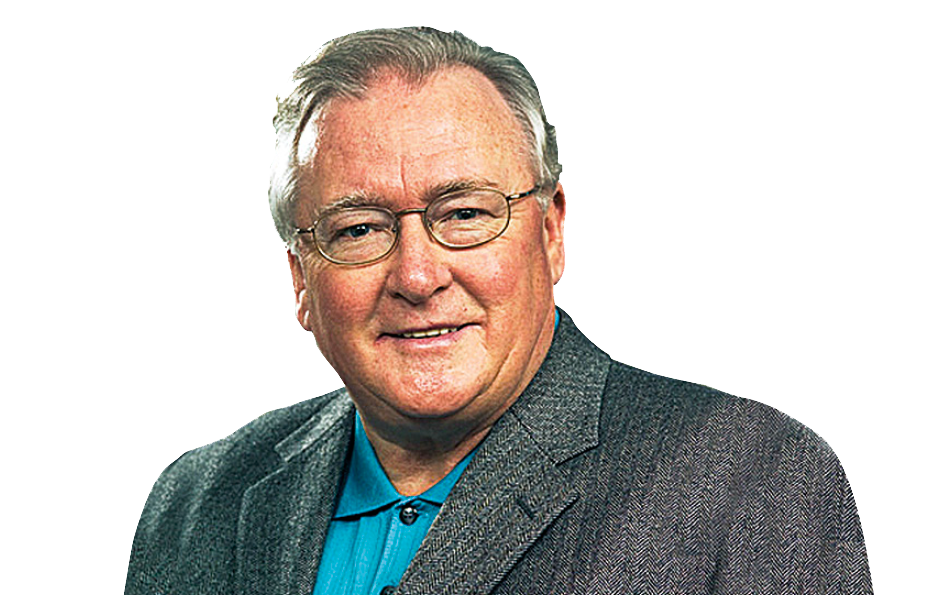I can see clearly now

I had major surgery this past week.
Well, actually it was only a laser eye operation, but hey, surgery is only minor when it is being performed on someone else!
After having trouble with my eyes, my doctor referred me to a specialist who diagnosed me with macular degeneration. So inquisitive old me had to ask what had caused this. His reply will haunt me forever: “What do you expect for a man of your age?”
To add insult to injury, I have been afflicted with “age-related Macular Degeneration”, or AMD. The good news was that I had been referred in what he described as my “golden moment of opportunity”. Certainly since I underwent the 5 minute, painless and – yes, I admit it – minor procedure, I already see significant improvement.
I have learned two things from this experience. (No, I was fully aware I was getting older, thank you!)
First, it is never too late to get a clearer look at things that maybe you have been seeing through some filter or, dare I say it, blind spot. Sometimes we get so locked in, entrenched in our ideas or ‘the way we’ve always done it’, that it takes a crisis like a pandemic to help us see a possible different way.
Secondly, I believe there is often a ‘golden moment of opportunity’ in which we can turn what might seem to be a negative situation into a positive opportunity.
If not a silver lining, could there be a golden opportunity we can find globally from the past few months? Can we clearly see new trends created by the pandemic restrictions? Certainly it is easy see the negatives: how businesses have been affected, how people have been disturbed and distressed, and let’s not minimise that or try to paint some artificially rosy picture.
But every situation forces people to adapt. That is a major human strength. We rise to the occasion. We face the challenges. We care resilient. In my last article we spoke of how the pandemic has changed many attitudes towards funerals, rituals, mortality, planning and grief support, and the importance of human interaction. I believe we are at a crossroads in how we handle every aspect of grief and loss.
Grief counseling has a problem. Many therapists have waiting lists of months, unacceptably to grieving people who need help now, and most people especially in light of the current financial crisis can barely afford traditional psychotherapy. Besides, grief is not a sickness and should not be treated as such.
So what about the growing cyber-therapy on offer? To list the problems being experienced with confidentiality, unqualified practitioners, and even lawsuits will take another article.
My concern is that any type of therapy that is not face to face robs the client of a vitally important means of communication. A large part of what we convey is from facial expression, tone of voice, body language and gestures. These are important dimensions in transmitting what we mean when we talk to one another. Without being face to face watching for subtle clues, it is very easy for the client to misunderstand what the counsellor is really saying and vice versa.
Online interaction also denies people the ‘human touch’, one of the things people have said they missed the most during the pandemic.
I see more clearly than ever that grieving people want to talk to somebody who ‘gets it’. Not just anybody: someone who knows what it is like to lose a loved one, sharing a face to face conversation leading in positive and healing ways.
If only there was a turn-key community program that could allow people to gather in a funeral home, church, school or library to participate in grief support. Somewhere they could find good information on understanding grief, and strategies on facing challenges like guilt, anger and loneliness, facilitated by someone who could encourage face to face discussion, (social distancing permitting) together with people who have been there.
Back in March when the lockdown began, I came across an inspiring statement: “What does a farmer do when he cannot get out into the field? He sharpens his tools.”
That’s exactly what I have been doing recently. I have sharpened my tools and am ready to launch my new community program, ‘When Life Changes’. Watch this space for details.
So, I may be “degenerating”, but I see clearly that I’m not finished yet.
Tags: aftercare, Bill Webster, coronavirus, COVID-19, Dr Bill, grief, Grief Journey